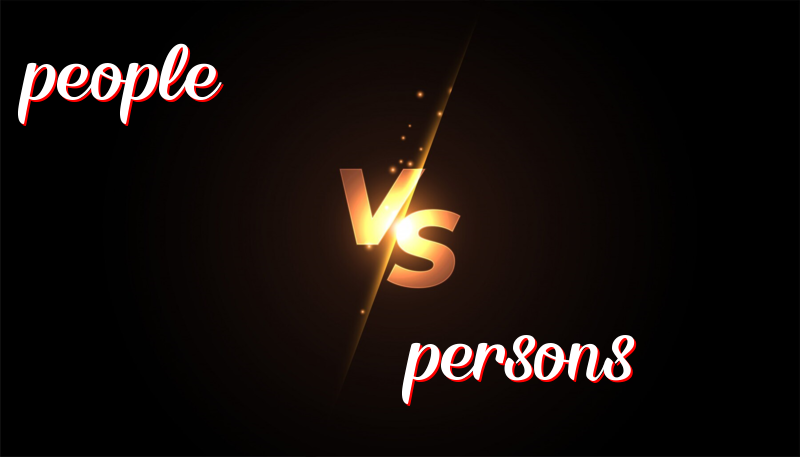英語單詞People 與 Persons的區別
January 23, 2025
人們與人的差異詳述
英語單詞「People」和「Persons」雖然都可翻譯為「人」,但它們在語法和用法上有些微妙的不同。了解它們的區別可以幫助我們在寫作和口語中更加精確地表達。
詞源歷史
People:這個詞起源於拉丁語的「populus」,意指「民眾」和「群體」。在現代英語中,「people」通常以複數形式表示人們或人民。
Persons:「Person」源自拉丁語「persona」,在古代指的是面具或角色。它在現代英語中指的是一個單獨的個體。儘管「persons」是「person」的複數形式,但在現代標準英文中,比較少使用。
用法
- People:用於指代一組人,不確定或確定的數量,通常不會和具體的數字一起使用。
- Persons:有時用於正式或法律文件中,尤其是當確切的數量較少且明確時。它也可用於強調個體之間的差異。
例句:People
- Many people enjoy going to the beach.
很多人喜歡去海邊。 - People all around the world celebrate New Year.
全世界的人們都慶祝新年。 - She is a people person; she loves to socialize.
她是一個外向的人;她喜歡社交。 - In ancient times, people believed in various gods.
在古代,人們相信各種神祇。 - People in my neighborhood are very friendly.
我家鄰里的人們都很友好。
例句:Persons
- Only two persons were invited to the private dinner.
只有兩個人被邀請參加私人晚宴。 - The bus can accommodate up to forty-eight persons.
這輛巴士可以容納多達四十八人。 - The missing persons case remains unsolved.
失蹤人員的案件尚未解決。 - All persons entering the building must show their ID.
所有進入大樓的人必須出示他們的身份證。 - There are three persons in this photo.
這張照片中有三個人。
記憶小技巧
要記住這兩個詞的區別,可以用以下方式:想像「people」總是指眾多的人群,而「persons」則是以計數方式指少數的個人。
總結
「People」常用於日常生活中,以表示不特定數量的群體,是非常通用且廣泛使用的詞彙。而「Persons」則通常出現在正式或法律文書中,特別是當需要強調特定數量的個人時。在應用中,根據上下文的不同選擇合適的詞,以確保準確和禮貌的交流。

Leave a Reply
You must be logged in to post a comment.